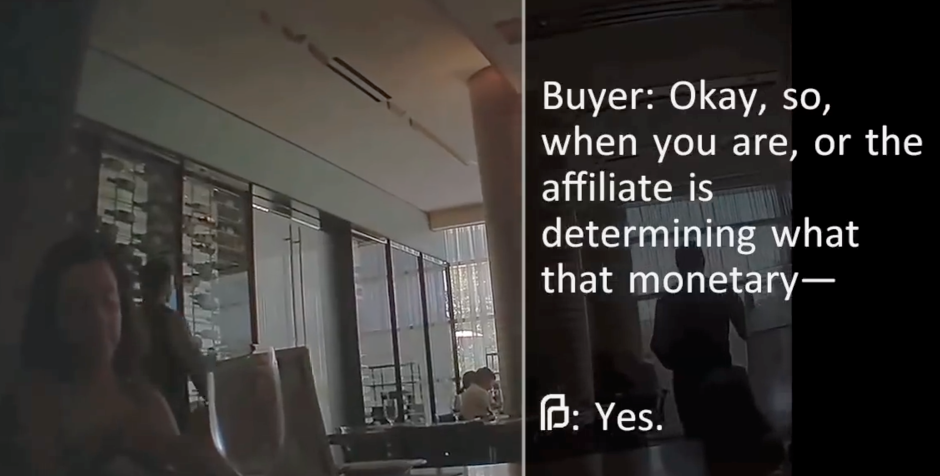Bizarre, Backwards, and Baseless: Legally Debunking Indictments against Pro-Life Investigative Journalists
How could an unbiased and just legal investigation into the Planned Parenthood videos released last summer result in indictments for the investigative journalists but not for Planned Parenthood?
There’s only one answer – it couldn’t. The indictment of these pro-life investigative journalists – who were attempting to expose potentially criminal activity – is beyond the pale, a misuse of the justice system, and a contortion of any reasonable reading of the purpose of the law.
Texas Penal Code § 48.02 on the Prohibition of the Purchase and Sale of Human Organs reads as follows:
(a) "Human organ" means the human kidney, liver, heart, lung, pancreas, eye, bone, skin, fetal tissue, or any other human organ or tissue, but does not include hair or blood, blood components (including plasma), blood derivatives, or blood reagents.
(b) A person commits an offense if he or she knowingly or intentionally offers to buy, offers to sell, acquires, receives, sells, or otherwise transfers any human organ for valuable consideration.
(c) It is an exception to the application of this section that the valuable consideration is: (1) a fee paid to a physician or to other medical personnel for services rendered in the usual course of medical practice or a fee paid for hospital or other clinical services; (2) reimbursement of legal or medical expenses incurred for the benefit of the ultimate receiver of the organ; or (3) reimbursement of expenses of travel, housing, and lost wages incurred by the donor of a human organ in connection with the donation of the organ.
(d) A violation of this section is a Class A misdemeanor.
What is the purpose of this statute? The answer is relatively clear: Texas wants to stop people from profiting from trafficking in human body parts, whether it’s human blood, organs, or the tissue and body parts from unborn babies.
In order to do this, they outlawed all the activity associated with trafficking human body parts – offering to buy, offering to sell, acquiring them, receiving them, selling them, or otherwise transferring any human organ for a profit.
In fact, the Texas Senate’s own legal analysis of the statute shows that the purpose of the legislation was to prohibit and criminalize “the sale of organs by brokers, who would buy dead bodies, or even parts of living donors, and resell them for a profit.” It was not to target investigative journalists attempting to expose to the public such horrific behavior by taxpayer-funded entities.
So how can investigative journalists trying to expose Planned Parenthood’s willingness to sell the body parts of aborted babies be indicted under this statute? They weren’t truly offering to buy anything, but instead were merely trying to bring to public light—and put an end to—this barbaric practice.
On Day One of criminal law class, every first year law student learns that for a crime to be committed there must be two elements present: an act and an intent. Here the intent element was clearly lacking.
The intent required for a violation of the organ trafficking statute is a high bar: knowingly or intentionally. Here it’s abundantly clear that the pro-life investigative journalists didn’t intend to offer to actually buy any human organs, but instead sought to expose Planned Parenthood’s willingness to sell them. As for the “knowingly” standard, what these journalists actually knew was that the entire conversation was part of an undercover investigation, not an actual attempt to enter into a contract for the purchase of the organs of aborted babies.
Similarly, the indictment for tampering with a government record requires an intent to defraud. Again, there was no intent to defraud anyone but rather to expose potentially criminal behavior to the public.
Legally, these indictments are baseless.
Consider the disastrous repercussions to public awareness and safety when we criminalize exposing crime and corruption. We’ve all seen numerous Dateline and 20/20 television specials where reporters go undercover trying to capture, bring to public light, and eventually stop criminal activity. There is nothing different here.
There was no actual offer to buy the body parts of aborted babies, but instead a public exposé investigating Planned Parenthood’s abhorrent practices.
The First Amendment protects this activity because a free and vigorous press is one of the best measures we have to expose corruption – in this case by the largest taxpayer-funded abortion business in the country. These videos shine a light into the darkness. This is investigative journalism at its best.
These indictments are further brought into question by reports that one of the prosecutors in the office supposedly investigating Planned Parenthood is a board member and fundraiser for the very Planned Parenthood clinic under investigation. Is it any wonder the investigative journalists bringing this Planned Parenthood clinic’s horrendous actions to public light suddenly became the target?
These indictments are not only bizarre; they are backwards. These unwarranted criminal indictments pull the focus from the reprehensible conduct of Planned Parenthood – as plainly seen in the videos – and turn the right to free speech on its head by threatening to silence the journalists. Like clockwork, the pro-abortion mainstream media is now reporting on these indictments against the investigative journalists instead of the ongoing state and national investigations into Planned Parenthood’s disgusting practices.
The right to free speech and a free press is under threat as indictments like these are meant to silence the crucial voice of these journalists and chill pro-life speech.
We will continue to fight back against Planned Parenthood in federal court and on Capitol Hill, working to defend every life, no matter how small the body.
